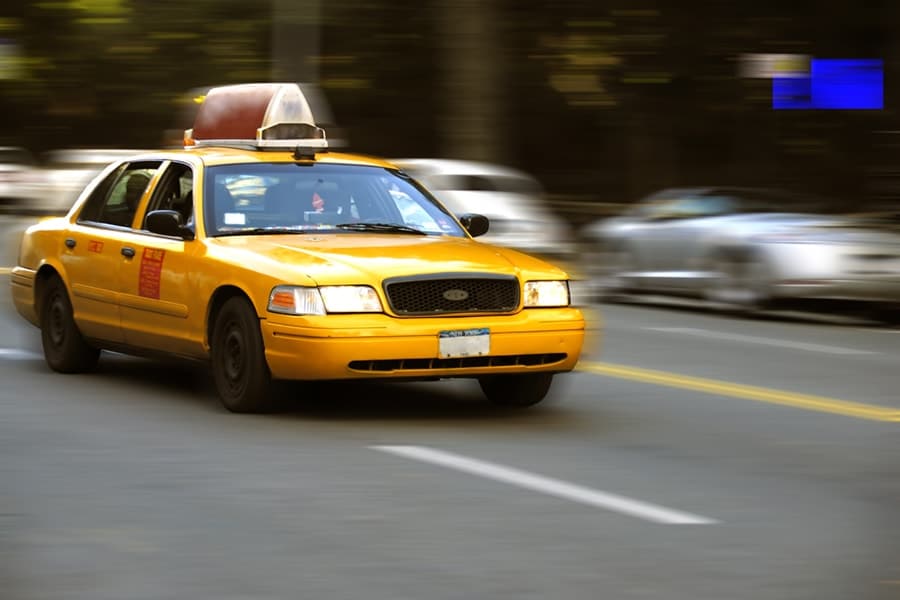Our firm handles a substantial number of cases wherein the client has been injured through the negligence of a Philadelphia cab driver. Unfortunately, it is our experience that Philadelphia cabs often carry minimum insurance coverage, meaning their liability limits are low. In Pennsylvania, the minimum amount of liability coverage one can carry is $15,000 per person and $30,000 per automobile accident. The result is that injured individuals who do not carry their own quality automobile insurance often do not receive the compensation to which they are entitled.
On a related note, The Philadelphia Inquirer recently reported that about one-quarter of Philadelphia cabs are insured with a company that is currently undergoing liquidation. That story can be found here.
All of the above highlights the importance of carrying adequate underinsured and uninsured automobile insurance coverage, which can help compensate car accident victims for unpaid medical expenses and pain and suffering in the event that the tortfeasor (negligent party) does not carry sufficient coverage. In Pennsylvania, your underinsured/uninsured coverage limits cannot exceed your liability limits. Thus, our office recommends to our client that they carry at least $100,000 per person and $300,000 per accident in both liability and underinsured/uninsured coverage. Relatively speaking, the cost of this coverage is minor.
A final related issue that our office often encounters deals with the law regarding waiving and lowering underinsured/uninsured coverage. A brief recitation of Pennsylvania’s law follows:
Section 1734 of Pennsylvania’s Motor Vehicle Financial Responsibility Law states:
A named insured may request in writing the issuance of coverages under section 1731 (relating to availability, scope and amount of coverage) in amounts equal to or less than the limits of liability for bodily injury.
In Orsag v. Farmers New Century Insurance, the Supreme Court of Pennsylvania Supreme had occasion to determine whether the signing of an insurance application satisfies the requirements of Section 1734. At issue was a two-page automobile insurance application that contained blank spaces to be filled in by hand. Orsag v. Farmers New Century Ins., 15 A.3d 896, 897 (Pa. 2011). The appellant requested bodily injury liability coverage of $100,000 per person and UM/UIM coverage of $15,000. Id. The appellant then signed the application, with following language appearing above the signature:
I have read the above application and I declare that to the best of my knowledge and belief all of the foregoing statements are true . . . . I understand that the coverage selection and limit choices here or in any state supplement will apply to all future policy renewals, continuations and changes unless I notify you otherwise in writing. Id.
The court framed the issue as follows:
If an insured signs an insurance application that contains lowered uninsured/underinsured motorist coverage limits, is that signature alone sufficient to meet the requirements of Section 1734 of Pennsylvania’s Motor Vehicle Financial Responsibility Law?” Id. at 899.
The court answered in the affirmative and set forth the only requirements of Section 1734: “[A] Section 1734 written request must include ‘not only the signature of the insured, but also, an express designation of the amount of coverage requested.”’ Id. at 901 (Pa. 2011) (internal citations omitted). The court then reasoned that “the most effective manner in which to ‘expressly designate’ the amount of coverage requested is by electing a specific dollar amount on an insurance application.” Id. Accordingly, the court held that the appellant’s signing of the insurance application, which included coverage amounts, was an effective and valid election of lesser underinsured motorist coverage. Id. (“[W]e hold the insurance application in question here satisfies §1734’s writing requirement as it clearly indicated appellants’ desire for reduced UM/UIM coverage, and was signed by the insured.”).
Note the difference between Section 1734 and 75 Pa.C.S. §1731 (“Section 1731”). Section 1731 sets forth the requirements for waiving UM/UIM coverage and is not applicable to reductions in UM/UIM coverage. Section 1731 states, in part:
(b) Uninsured motorist coverage.–Uninsured motorist coverage shall provide protection for persons who suffer injury arising out of the maintenance or use of a motor vehicle and are legally entitled to recover damages therefor from owners or operators of uninsured motor vehicles. The named insured shall be informed that he may reject uninsured motorist coverage by signing the following written rejection form:
REJECTION OF UNINSURED MOTORIST PROTECTION
By signing this waiver I am rejecting uninsured motorist coverage under this policy, for myself and all relatives residing in my household. Uninsured coverage protects me and relatives living in my household for losses and damages suffered if injury is caused by the negligence of a driver who does not have any insurance to pay for losses and damages. I knowingly and voluntarily reject this coverage.
(c) Underinsured motorist coverage.–Underinsured motorist coverage shall provide protection for persons who suffer injury arising out of the maintenance or use of a motor vehicle and are legally entitled to recover damages therefor from owners or operators of underinsured motor vehicles. The named insured shall be informed that he may reject underinsured motorist coverage by signing the following written rejection form:
REJECTION OF UNDERINSURED MOTORIST PROTECTION
By signing this waiver I am rejecting underinsured motorist coverage under this policy, for myself and all relatives residing in my household. Underinsured coverage protects me and relatives living in my household for losses and damages suffered if injury is caused by the negligence of a driver who does not have enough insurance to pay for all losses and damages. I knowingly and voluntarily reject this coverage.
See Lewis v. Erie Ins. Exchange, 793 A.2d 143, 153 (Pa. 2002) (stating that Sections 1731 and 1734 are treated differently, the former only applying to situations where UM/UIM is waived, not reduced).
Furthermore, there must be strict compliance with Section 1731. Section 1731(c.1) states:
Any rejection form that does not specifically comply with this section is void. If the insurer fails to produce a valid rejection form, uninsured or underinsured coverage, or both, as the case may be, under that policy shall be equal to the bodily injury liability limits.
Finally, the latter portion (emphasized above) of Section 1731(c.1) sets forth the consequences of failing to strictly comply with the statutory requirements – reformation to the bodily injury liability limits.



